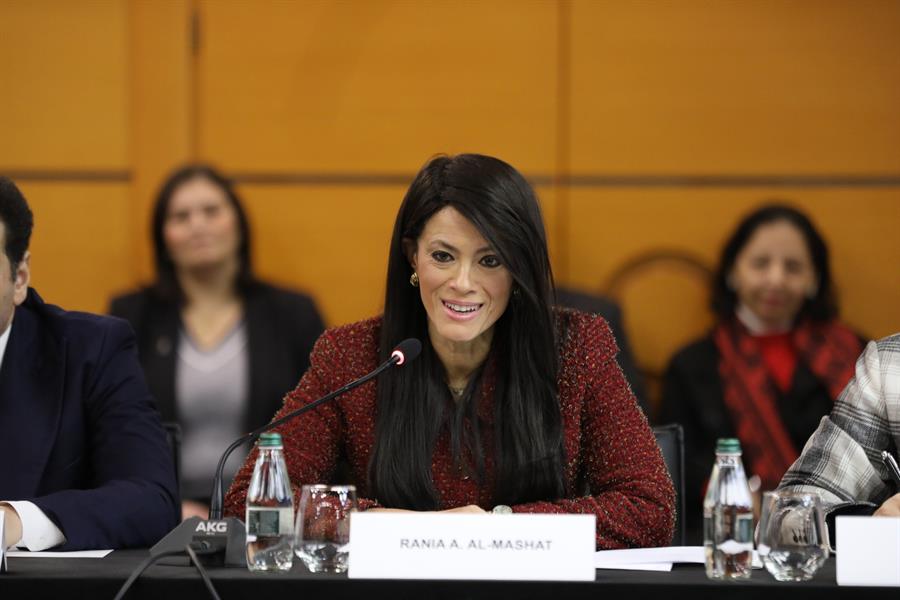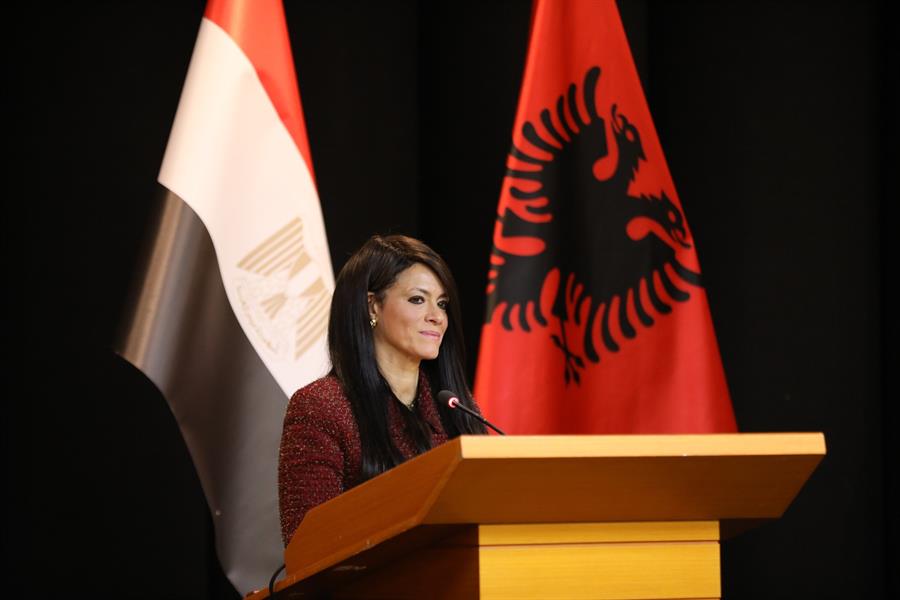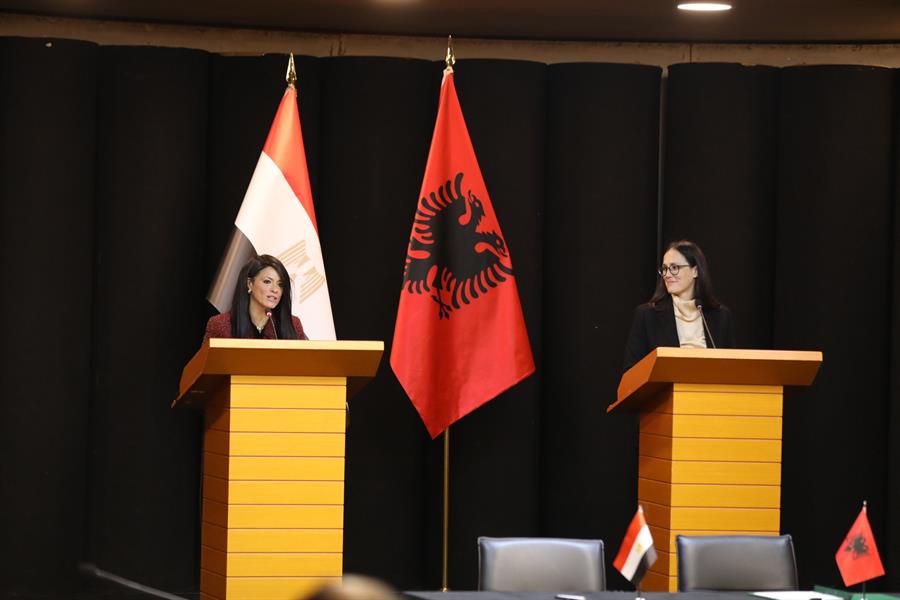Planning Ministry reviews the guidelines for building Egyptian people in the 23/2024 Economic and Social Development Plan

29 September 2023
In the report of the Ministry of Planning and Economic Development, the Ministry of Planning and Economic Development reviewed the framework guiding the human development of Egypt in the economic and social development plan for the current financial year 23/2024.
H.E. The Minister of Planning and Economic Development, Dr. Hala El-Said, explained that the purpose of the development work is to achieve the main goal of building the health, culture, sports, and society of the Egyptian people.
The construction concept is based on three main pillars that represent the intellectual framework that guides the dimensions of development. The first relates to the Egyptian right to enjoy a dignified life sustainably and equally, and the second relates to the human right to development in its holistic and sustainable perspective as an inherent human right.
The third is the human right to develop one's human capacities and potential. Therefore, the written document took into account economic and social development and adopted goals and policies that supported the building of the Egyptian man.
The Department of Economic and Social Development has published a written document Human Rights Responsive Investment Spending Guide (2023).
Its framework was based on the texts of the constitution (2014) and three main pillars, which are the economic and social human rights-related articles of Egyptian law, the sustainable development strategy (Egypt Vision 2030), and political indicators and size. Human Development Report on Egypt.
Indicators for measuring the achievement of the objectives of the investment plan at all stages of the project, criteria for selecting priority projects, and performance indicators for areas that subcontractors must periodically measure were formulated in the manual, and it was delivered. The monitoring and evaluation process is initiated by the Ministry of Planning and Economy.
The Ministry's report stated that the economic and social development plan document ensured that the human rights strategy is one of the most important foundations around which the development goals of the plan crystallize, as well as the resulting policies and programs in various fields of life.
The plan considered the direction of public investments to ensure the achievement of the objectives of the axes of the national strategy on human rights, especially the second and third pillars to achieve economic, social, and cultural rights, and also to achieve the rights of women, children, and individuals. the disabled and the elderly.
In the field of health law, the health services development plan referred to investments aimed at the phased introduction of a comprehensive health insurance system, the generalization of primary care, development programs for hospitals and health units at the level of all counties, and presidential and government initiatives related to the treatment of certain diseases and vaccines and vaccinations to prevent epidemics and viruses. In addition to investments aimed at improving the health status of rural areas in Egypt under the Decent Life initiative.
In the field of educational law, the plan wanted to direct appropriate investments to improve the learning process and its results, especially expanding the construction of schools and classrooms for students of all educational levels and reducing class density.
In addition to the technical development of the curricula, the expansion of technical education at the school level (second level), the development of university education and colleges, and the expansion of the establishment of technological universities and private universities with modern specialties must be involved to continue the fourth industrial revolution. In the field of cultural development law, the plan dealt with programs aimed at preserving the cultural and civilizational heritage of the Egyptian people through the maintenance and protection of archaeological sites, the development of cultural awareness, the expansion of cultural palaces and museums, and the creation. of various cultural forums, and cultural diffusion.
The pillar of Rights of Women, Children, Persons with Disabilities and the Elderly has formulated goals, policies, and programs that take into account the rights of these sections of society, such as a gender-sensitive planning approach, mechanisms for economic, social, and political empowerment of women, integrated health programs, adequate school nutrition and kindergarten expansion programs.
In addition to programs that promote innovation and entrepreneurship among young people and improve the health and physical fitness of young people, by increasing investments in the establishment and development of clubs, youth centers, hostels, stadiums, and youth cities for the elderly.
Regarding the second pillar: National Strategy for Sustainable Development: the Vision of Egypt "2030", the planning document included the introduction of the development concepts applied to the second part, especially the concept of sustainable development as it is included in the development strategy, the Egypt 2030 Vision.
It aims to "improve the quality of life of the Egyptian citizen and improve his standard of living."
This strategic goal is achieved through six general main goals: the eradication of poverty, food, respectable health care, improvement of the education system, provision of adequate housing, and enrichment of cultural and sports life, which are among the main pillars of human rights. mentioned earlier.
In this regard, the plan included many programs aimed at addressing qualitative differences between social groups and regions of the republic, providing social protection for poor people, achieving inclusion and equal opportunities, and adopting comprehensive development programs for rural Egypt.
The third pillar is the size of human development because the plan included the components of the human development system in dealing with the size of economic and social sector development, and in dealing with the size of local and regional development.
It has made significant improvements in many of the human development indicators cited in the UNDP 2022 report, including improved health indicators as evidenced by the decline in infant and under-five mortality, increased birth rates, and Egypt's progress. in eradicating the hepatitis virus and slowing the spread of the disease. Certain diseases, such as tuberculosis and autoimmune deficiency virus.
The report also observed improvements in educational indicators, such as increasing school enrollment rates and the disappearance of qualitative disparities in enrollment rates.
University education indicators also showed an improvement in the enrollment capacity of Egyptian universities and an increase in the total number of colleges and universities. In the development of the social security system, the report emphasized the government's readiness to expand social safety nets, especially women's economic and social empowerment programs, and to focus on geographic areas with the greatest need.
The objective of the 2023/2024 plan is to continue this trend of development, which focuses on the quantitative and qualitative improvement of human development indicators, adopting policies and programs that support them in a way that contributes to the continuation of the upward trend of these. Indicators.









